
Nlongkak: The Cultural Crossroads of Yaoundé
Nlongkak is a vibrant and dynamic neighbourhood located in the heart of Yaoundé, Cameroon’s bustling capital. Known for its rich cultural tapestry and lively atmosphere, Nlongkak serves as a melting pot where tradition and modernity seamlessly blend. Visitors will find a variety of attractions, from historical landmarks to contemporary art galleries, making it an ideal destination for those looking to experience the pulse of Cameroonian life. The neighbourhood is home to an array of local markets, where you can immerse yourself in the sights and sounds of daily life. Stroll through the bustling stalls to discover an assortment of local produce, handcrafted goods, and traditional Cameroonian cuisine. Nlongkak’s street food scene is particularly noteworthy, offering an authentic taste of the region’s flavors. Nlongkak also boasts several green spaces and relaxation spots. The local parks provide a peaceful retreat from the urban hustle, perfect for a leisurely afternoon. Additionally, the area is well-connected by public transport, making it easy to explore other parts of Yaoundé. Whether you are a history buff, a foodie, or just someone looking to soak up the local culture, Nlongkak has something special to offer.
Local tips in Nlongkak
- Visit the local markets early in the morning for the freshest produce and unique handcrafted items.
- Try the street food; it’s a delicious way to experience local flavors.
- Use public transport for easy access to other parts of Yaoundé.
- Spend some time in the local parks for a peaceful retreat from the city’s bustle.
Nlongkak: The Cultural Crossroads of Yaoundé
Nlongkak is a vibrant and dynamic neighbourhood located in the heart of Yaoundé, Cameroon’s bustling capital. Known for its rich cultural tapestry and lively atmosphere, Nlongkak serves as a melting pot where tradition and modernity seamlessly blend. Visitors will find a variety of attractions, from historical landmarks to contemporary art galleries, making it an ideal destination for those looking to experience the pulse of Cameroonian life. The neighbourhood is home to an array of local markets, where you can immerse yourself in the sights and sounds of daily life. Stroll through the bustling stalls to discover an assortment of local produce, handcrafted goods, and traditional Cameroonian cuisine. Nlongkak’s street food scene is particularly noteworthy, offering an authentic taste of the region’s flavors. Nlongkak also boasts several green spaces and relaxation spots. The local parks provide a peaceful retreat from the urban hustle, perfect for a leisurely afternoon. Additionally, the area is well-connected by public transport, making it easy to explore other parts of Yaoundé. Whether you are a history buff, a foodie, or just someone looking to soak up the local culture, Nlongkak has something special to offer.
Iconic landmarks you can’t miss
National Museum
Discover Cameroon's vibrant history and culture at the National Museum in Yaoundé, a treasure trove of art, artifacts, and traditions.
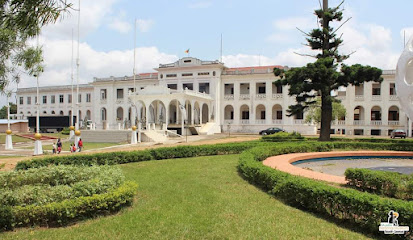
Cameroon Reunification Monument
A landmark in Yaoundé symbolizing Cameroon's reunification and national identity, celebrating unity and cultural heritage.
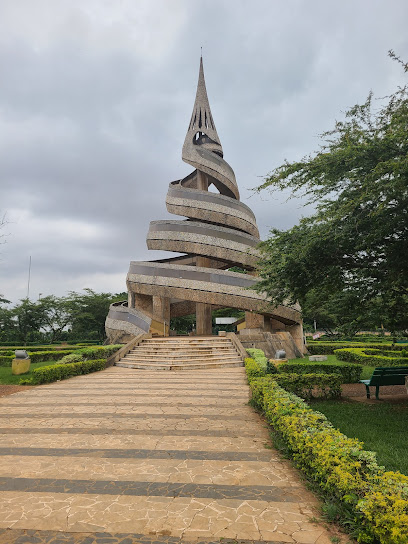
Bois Sainte Anastasie
Discover a serene escape in Yaoundé at Bois Sainte Anastasie: a blend of nature, art, and local flavors in the heart of the city.
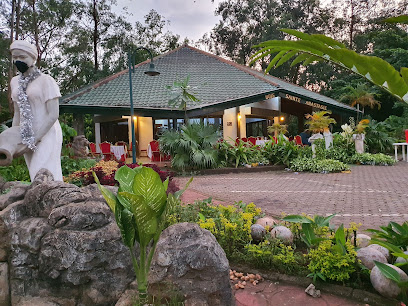
Basilica of Mary Queen of Apostles
Discover Yaoundé's architectural gem, the Basilica of Mary Queen of Apostles, a spiritual haven blending African and contemporary design.
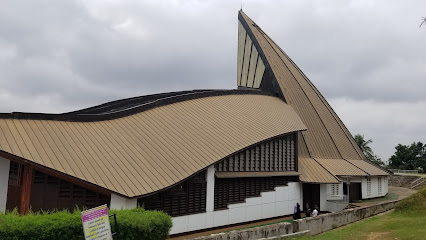
Place Saint Josué
Yaoundé's Place Saint Josué: The perfect venue for unforgettable events, offering elegance, comfort, and professional service.
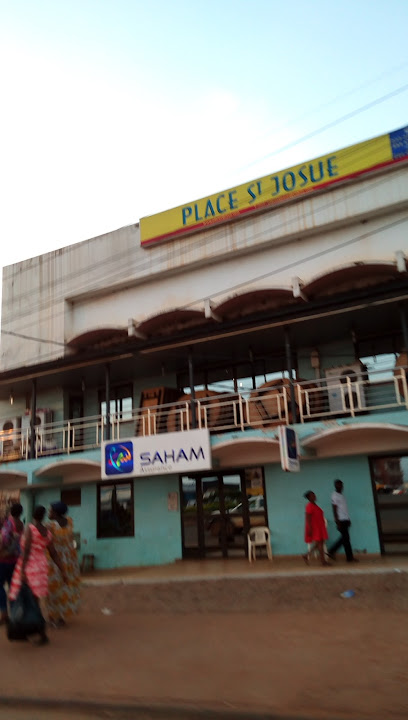
Statue of Charles Atangana
Discover the Statue of Charles Atangana in Yaoundé, a striking landmark celebrating Cameroon's rich heritage and the legacy of a national hero.
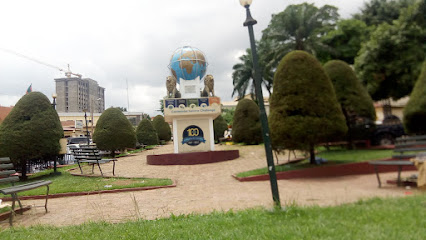
Musée Ethnographique et d'Histoire des Peuples de la Forêt d'Afrique Centrale
Discover the rich cultural heritage of Central Africa's forest peoples at this fascinating Yaoundé museum. Explore traditions, art, and history.
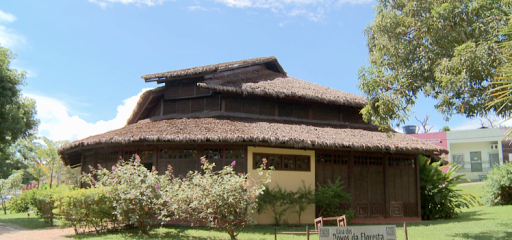
Blackitude Museum
Discover Cameroon's rich cultural heritage at the Blackitude Museum in Yaoundé, showcasing art, traditions, and history.
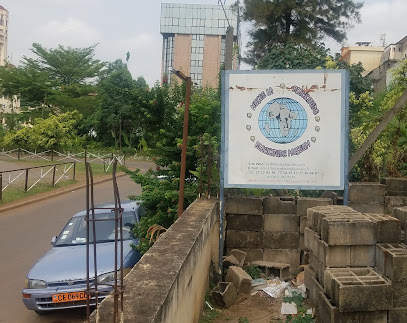
I love my country Cameroon round about
Experience Cameroonian pride at Yaoundé's 'I Love My Country' Round About, a vibrant hub of culture, art, and community spirit. A must-see landmark!
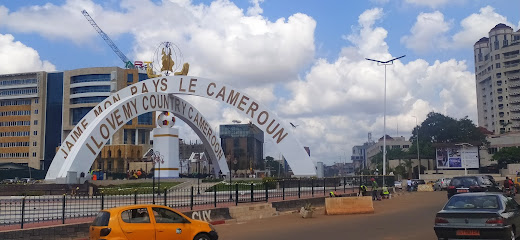
Nokadi
Experience the cozy charm of Nokadi in Yaoundé, where exquisite local coffee meets a warm and inviting atmosphere. A perfect escape in Quartier Manguissa.
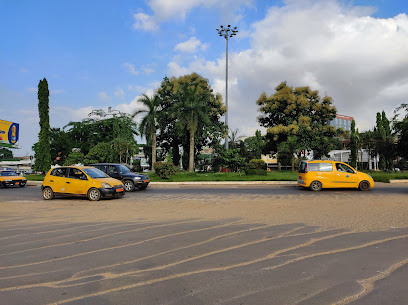
Monument of Colonel Leclerc
Discover the Monument of Colonel Leclerc in Yaoundé, a tribute to WWII hero Philippe Leclerc and Cameroon's colonial history.
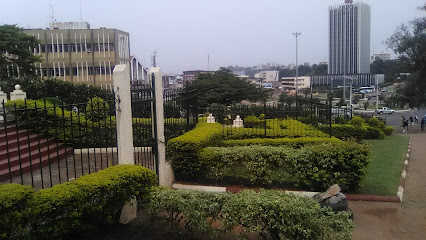
Independence Square
Discover Cameroon's history at Independence Square in Yaoundé, a landmark of freedom, unity, and cultural heritage. A vibrant hub in the city center.
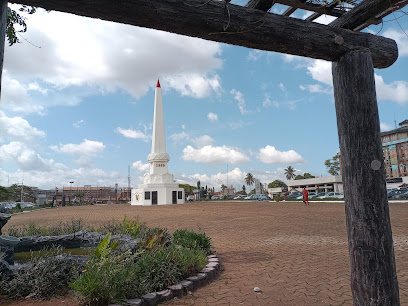
Art Museum
Discover Cameroon's artistic soul at the Art Museum in Yaoundé, showcasing a diverse collection of traditional and contemporary masterpieces.
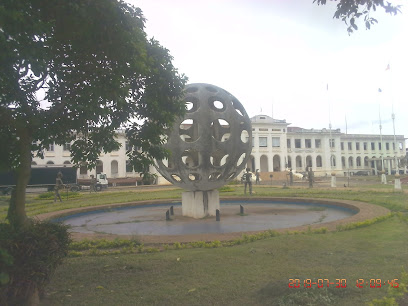
Monument j'aime mon pays
Discover the heart of Cameroon at the Monument J'aime Mon Pays, a symbol of unity and national pride in Yaoundé.
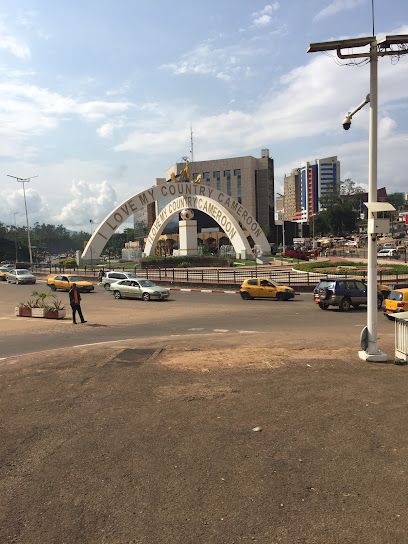
Monument Patriote
Discover Yaoundé's newest landmark, a symbol of Cameroonian patriotism and national unity, with symbolic artwork and illuminated fountains.
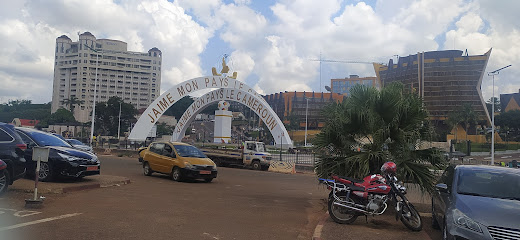
Unmissable attractions to see
Eco Park.
Experience the natural beauty of Eco Park in Yaoundé, a tranquil oasis for tourists seeking adventure and relaxation in Cameroon.
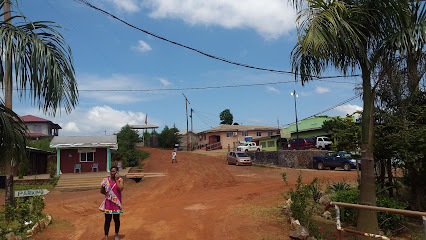
ROND POINT BASTOS
Discover the tranquility of Rond Point Bastos, a lush park in Yaoundé ideal for relaxation, picnics, and experiencing local culture amidst nature.
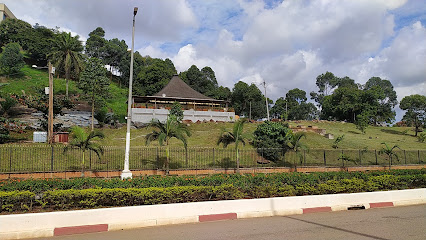
Ambola
Explore Ambola, a tranquil tourist attraction in Yaoundé, where nature meets culture in the heart of Cameroon.
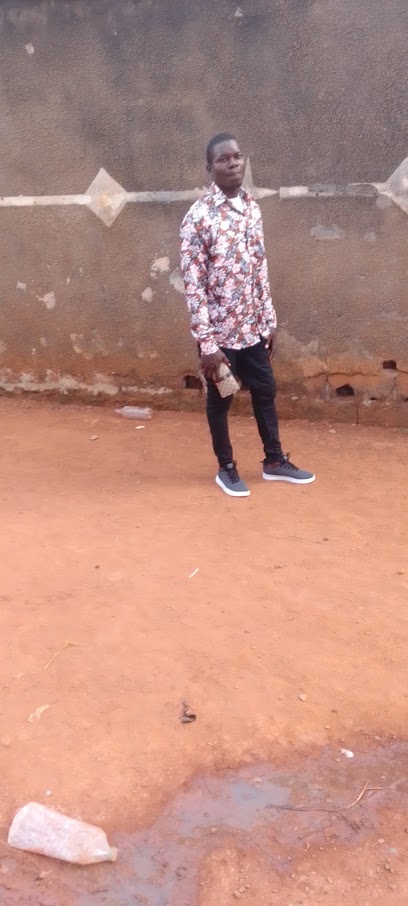
Rond point Nlongkak
Discover the tranquil beauty of Rond Point Nlongkak, a stunning garden oasis in Yaoundé, perfect for relaxation and nature appreciation.
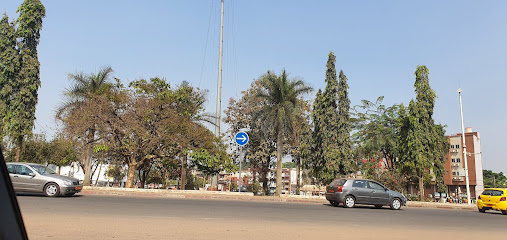
Mbouda
Explore Mbouda, a vibrant tourist attraction in Yaoundé, where culture, local crafts, and breathtaking scenery await your discovery.

Love stone
Discover the enchanting Love Stone in Yaoundé, a captivating natural attraction rich in local lore and surrounded by lush beauty.
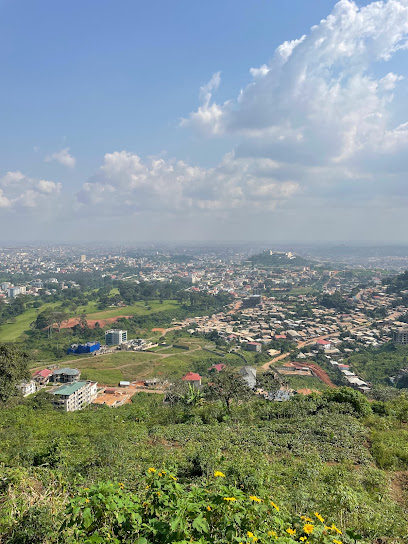
Ceasar
Explore the vibrant culture and heritage of Yaoundé at Ceasar, a must-visit tourist attraction in Cameroon’s capital.

Essential places to dine
Malaïka Restau Bar
Experience authentic Cameroonian cuisine at Malaïka Restau Bar in Nlongkak, Yaoundé - where every dish tells a story.
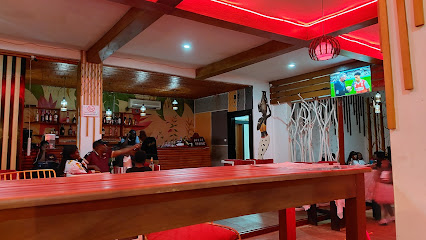
Mi-Sahel Restaurant
Experience authentic Cameroonian cuisine at Mi-Sahel Restaurant in Yaoundé - where flavor meets culture in every dish.
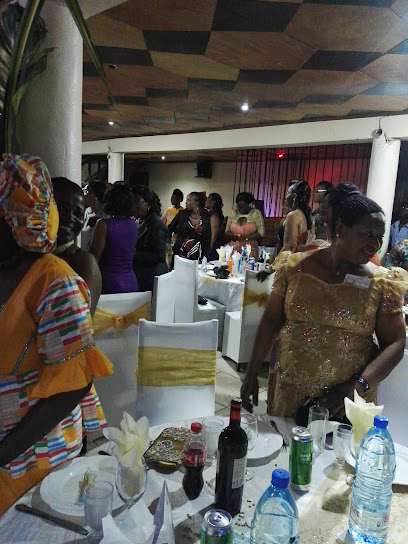
Restaurant le Djoungolo
Discover authentic Cameroonian cuisine at Restaurant le Djoungolo in Yaoundé - a culinary journey through rich flavors and warm hospitality.
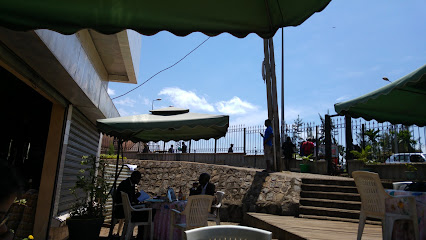
Yummy Restaurant237
Experience authentic African cuisine at Yummy Restaurant237 in Djoungolou, Yaoundé - where every dish tells a story.
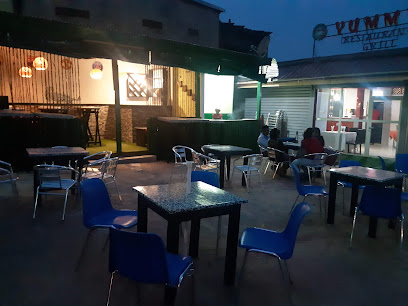
Shangri-La
Experience authentic Cameroonian flavors at Shangri-La in Yaoundé – where every meal tells a story.
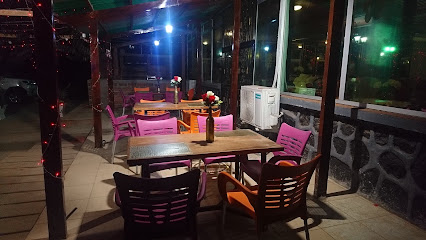
Le REFUGE H-plus
Discover exquisite grilled cuisine and vibrant bar offerings at Le REFUGE H-plus in Yaoundé - your ultimate culinary destination.
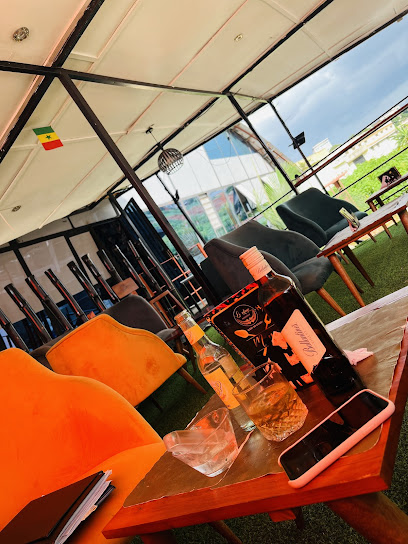
Les Saveurs De La Péniche
Experience the best of Cameroonian cuisine at Les Saveurs De La Péniche in Yaoundé – where every dish tells a story.
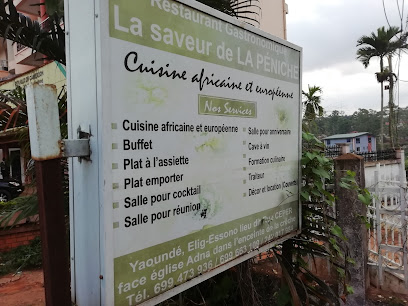
BOZARD RESTAURANT DE L'UNITÉ
Experience authentic Cameroonian cuisine at Bozard Restaurant de l'Unité in Yaoundé - where every meal is a celebration of flavor.

Le Bistrot d'Ongola
Discover authentic Cameroonian cuisine at Le Bistrot d'Ongola, where every dish tells a story of flavor and tradition.

Café cheftaine
Discover family-friendly dining at Café Cheftaine in Yaoundé - where local flavors meet warm hospitality.

Markets, malls and hidden boutiques
THE HYPE STORE CM
Explore the vibrant fashion scene at The Hype Store CM in Yaoundé, where trendy accessories meet unique styles for every taste.
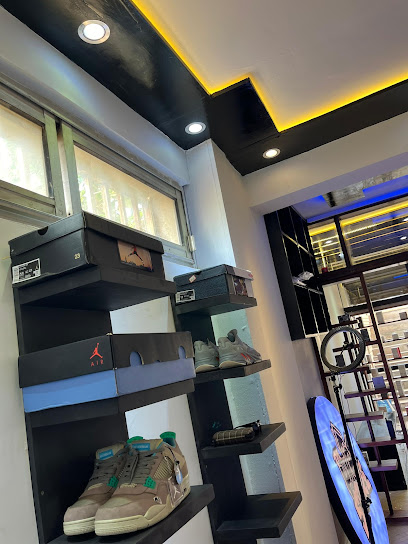
Fairy Space
Explore unique home goods and custom t-shirts at Fairy Space, a charming store in Yaoundé that showcases the essence of Cameroonian culture.
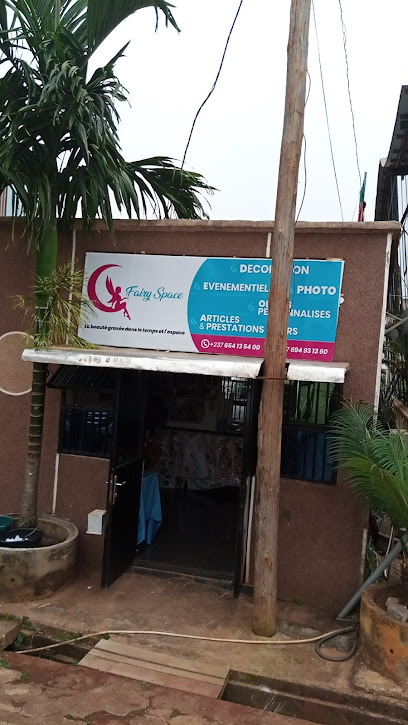
LAFORTUNE BOUTIQUE (l’adresse qu’il vous faut!!!)
Explore unique fashion accessories at Lafortune Boutique in Yaoundé, where local craftsmanship meets contemporary style.
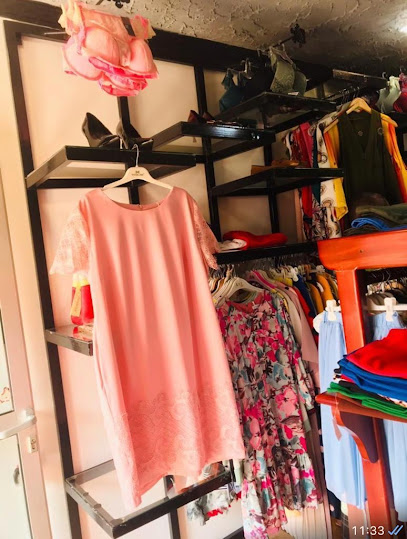
One Store
Discover unique clothing and creative digital printing services at One Store, Yaoundé's vibrant hub for fashion and marketing.
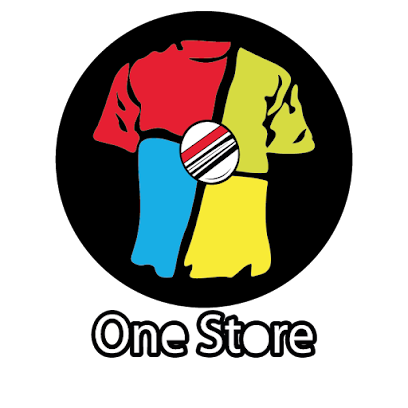
Like&Shop by LAEXY
Discover the ultimate health and beauty shopping experience at Like&Shop by LAEXY in Yaoundé, where quality meets local charm.
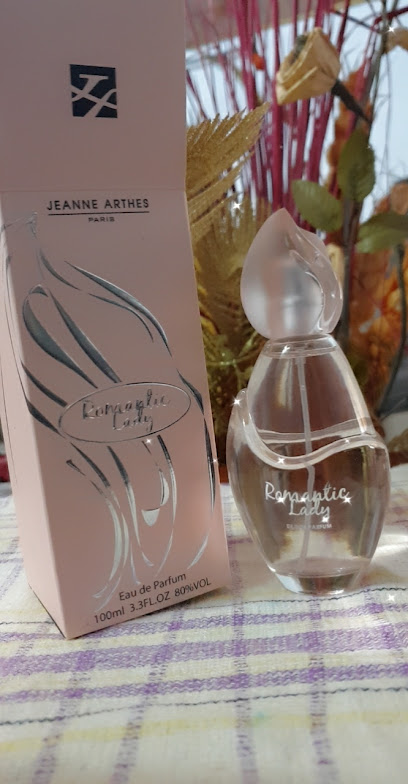
Jfbk
Discover Jfbk in Yaoundé: A vibrant store showcasing local craftsmanship and culture in the heart of Cameroon.

My Lifestyle store 237
Discover unique local treasures at My Lifestyle Store 237 in Yaoundé's Marché Parc Kyriakydes, where culture meets style.
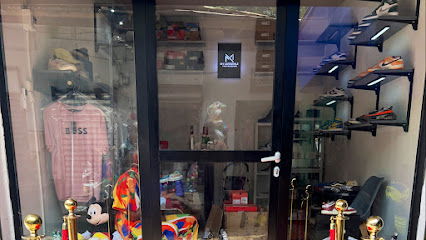
Le bazar de BOF
Explore the vibrant world of fashion at Le bazar de BOF, your destination for unique accessories and local craftsmanship in Yaoundé.

LEAKIDS (YAOUNDÉ)
Explore LEAKIDS, a trendy fashion accessories store in Yaoundé, for unique pieces that blend modern style with Cameroonian heritage.
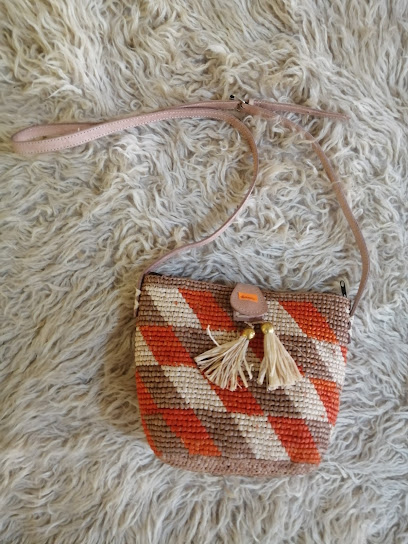
Angy Chris Shop
Explore unique fashion at Angy Chris Shop, a premier women's clothing store in Yaoundé, celebrating local style and contemporary trends.

Essential bars & hidden hideouts
Malaïka Restau Bar
Discover the vibrant culinary scene at Malaïka Restau Bar in Yaoundé, where local flavors meet a lively atmosphere for an unforgettable dining experience.
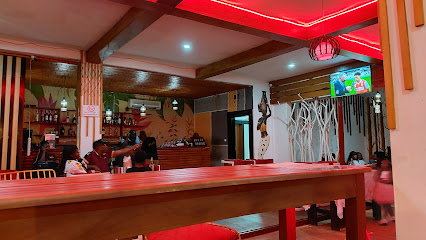
The Rooftop Yaoundé
Experience breathtaking views, vibrant nightlife, and delicious cocktails at The Rooftop Yaoundé, your ultimate bar destination in the heart of Cameroon.
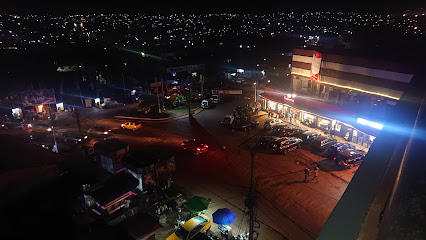
MACADAM BIKERS
Discover the lively nightlife of Yaoundé at MACADAM BIKERS, a vibrant bar offering great drinks and a welcoming atmosphere.
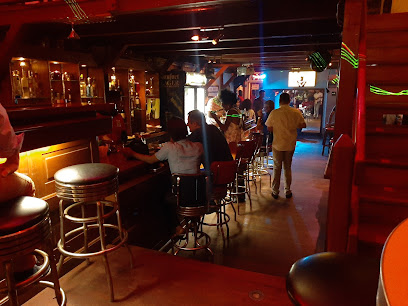
Bambou Lounge
Experience the lively dining and nightlife scene at Bambou Lounge in Yaoundé, where local flavors meet international cuisine in a vibrant atmosphere.
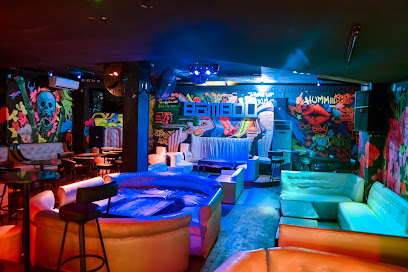
HOT SPOT THE CELLAR
Experience the vibrant nightlife of Yaoundé at Hot Spot The Cellar, a lively bar offering local drinks and a welcoming atmosphere.
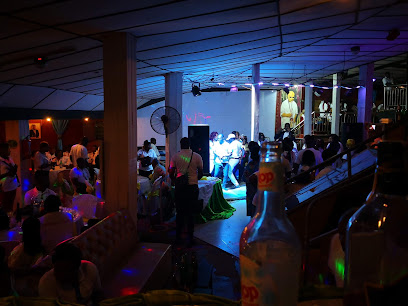
Café cool
Discover the vibrant atmosphere of Café Cool in Yaoundé, where local flavors and relaxation meet for an unforgettable experience.
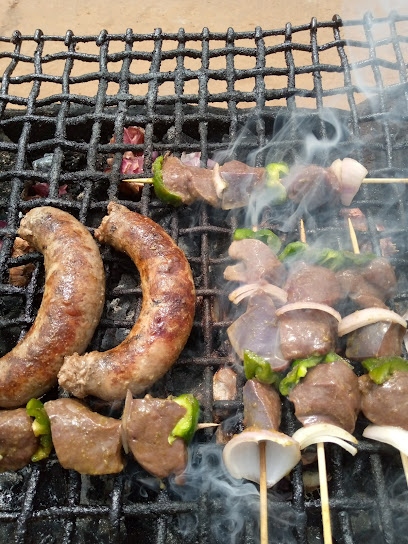
FRESCO Y CALIENTE
Discover the vibrant ambiance and delightful beverages at Fresco y Caliente, Yaoundé's premier lounge for relaxation and socializing.
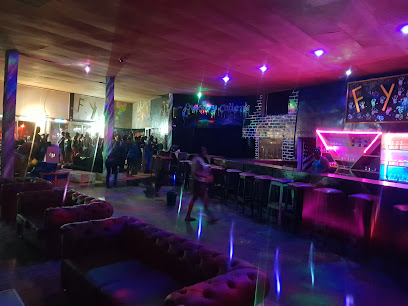
Nectar club
Experience the vibrant nightlife of Yaoundé at Nectar Club, a top bar offering local drinks and a lively atmosphere for an unforgettable evening.

Turn Turn Bar
Experience the vibrant nightlife at Turn Turn Bar in Yaoundé, where local flavors and lively music create unforgettable moments.

CHEZ DEF : BAR-RESTAURANT-MULTISERVICES
Chez Def: A lively bar-restaurant in Yaoundé offering delicious Cameroonian cuisine and a vibrant social atmosphere.
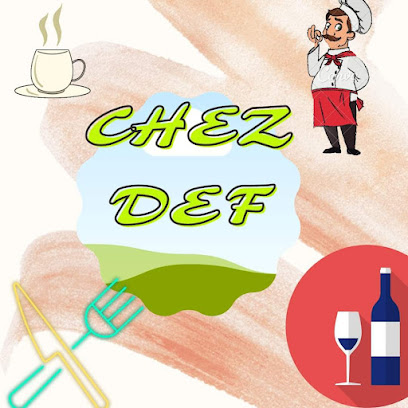
Local Phrases
-
- HelloMbele
[em-beh-leh] - GoodbyeKesem
[keh-sem] - YesEya
[eh-yah] - NoAh-ah
[ah-ah] - Please/You're welcomeJiok
[jee-ohk] - Thank youSia
[see-ah] - Excuse me/SorryPardon
[pah-don] - How are you?Nkuma la?
[en-koo-mah lah] - Fine. And you?Nkuma. En njie?
[en-koo-mah. en jee-eh] - Do you speak English?Njok le ngomba ku angaleis?
[njohk leh ngohm-bah koo ahn-gah-layss] - I don't understandAh nah ngonim
[ah nah ngo-neem]
- HelloMbele
-
- I'd like to see the menu, pleaseNyama a di nga njang, jiok
[nyah-mah ah dee ngah n-jahn, jee-ohk] - I don't eat meatAh nah nje nyama
[ah nah n-jeh nyah-mah] - Cheers!Bambe!
[bahm-beh] - I would like to pay, pleaseNyama a di nga nyam, jiok
[nyah-mah ah dee ngah nyahm, jee-ohk]
- I'd like to see the menu, pleaseNyama a di nga njang, jiok
-
- Help!Mfua!
[m-foo-ah] - Go away!Vasa!
[vah-sah] - Call the Police!Njok le nje ma ngong
[njohk leh n-jeh mah n-gohng] - Call a doctor!Njok le nje ma nkem
[njohk leh n-jeh mah n-kem] - I'm lostAh bah nje
[ah bah n-jeh] - I'm illAh bah nkem
[ah bah n-kem]
- Help!Mfua!
-
- I'd like to buy...Nyama a di nga...
[nyah-mah ah dee ngah...] - I'm just lookingAh nyam ba nyie
[ah nyahm bah nyee] - How much is it?Nyama a di nga nyam?
[nyah-mah ah dee ngah nyahm?] - That's too expensiveNyama a di nje ma tuf
[nyah-mah ah dee n-jeh mah toof] - Can you lower the price?Njok le nje ma ha tuf?
[njohk leh n-jeh mah hah toof?]
- I'd like to buy...Nyama a di nga...
-
- What time is it?Nyie a ngia?
[nyee ah ng-yah] - It's one o'clockNgia a nyuma
[ng-yah ah nyoo-mah] - Half past (10)Nyie a ngia (10) a nju
[nyee ah ng-yah (10) ah n-joo] - MorningNju
[n-joo] - AfternoonNkay
[en-kahy] - EveningNkaba
[en-kah-bah] - YesterdayNkavuru
[en-kah-voo-roo] - TodayNkang
[en-kahng] - TomorrowNkuma
[en-koo-mah] - 1Nyie
[nyee] - 2Njama
[n-jah-mah] - 3Ntam
[en-tahm] - 4Nyak
[nyahk] - 5Njoh
[n-joh] - 6Njem
[n-jehm] - 7Ndi
[en-dee] - 8Nyoh
[nyoh] - 9Njohng
[n-johng] - 10Nyieh
[nyee-eh]
- What time is it?Nyie a ngia?
-
- Where's a/the...?Nkum a/the...?
[en-koom ah/the...] - What's the address?Nyie a ngia a ngom a nji?
[nyee ah ng-yah ah ngohm ah n-jee] - Can you show me (on the map)?Njok le nje ma di nga (a map)?
[njohk leh n-jeh mah dee ngah (ah map)?] - When's the next (bus)?Nyie a ngia a nyuma (bus)?
[nyee ah ng-yah ah nyoo-mah (bus)?] - A ticket (to ....)Nyie a nyama (to ....)
[nyee ah nyah-mah (to ....)]
- Where's a/the...?Nkum a/the...?
History of Nlongkak
-
Nlongkak, like much of Yaoundé, experienced significant changes during the colonial era, particularly under German and later French administration. The area began to develop as a residential neighborhood, attracting various ethnic groups and contributing to the multicultural tapestry of the city. This period saw the establishment of infrastructure such as roads and schools, which laid the groundwork for future growth.
-
Following Cameroon’s independence in 1960, Nlongkak became increasingly urbanized, reflecting the rapid population growth in Yaoundé. The neighborhood witnessed an influx of people from various regions seeking opportunities in the capital, which transformed Nlongkak into a vibrant urban center characterized by a mix of traditional and modern influences.
-
Nlongkak is notable for its diverse cultural landscape, representing various ethnic groups, including the Ewondo, Bassa, and Fulani, among others. This diversity is reflected in the neighborhood's festivals, culinary practices, and daily life, where traditional customs coexist with urban modernity. Community gatherings and markets are integral to Nlongkak's social fabric, fostering a sense of belonging among residents.
-
The establishment of educational institutions in Nlongkak has played a crucial role in the neighborhood's development. Schools like the Lycée de Nlongkak have been pivotal in providing education to the local population. These institutions have contributed to a more educated youth, leading to increased employment opportunities and social mobility within the community.
-
In recent years, Nlongkak has faced urban challenges such as overcrowding, inadequate infrastructure, and economic disparities. However, the residents have shown resilience, forming community organizations to address these issues. Initiatives aimed at improving local infrastructure and promoting sustainable development reflect the neighborhood's commitment to enhancing living conditions while preserving its cultural identity.
Nlongkak Essentials
-
Nlongkak is easily accessible from various neighbourhoods in Yaoundé. If you're coming from downtown, you can take a taxi or a motorcycle taxi (benskin) directly to Nlongkak, which generally takes about 15-30 minutes depending on traffic. Buses and minibuses (known as 'transports en commun') also frequently operate routes to Nlongkak, and you can catch them from major bus stations in the city.
-
Nlongkak is best navigated on foot for a more immersive experience, as many local attractions and shops are within walking distance. Taxis and motorcycle taxis are widely available for longer distances or if you prefer not to walk. Public buses also serve the area, but be mindful that they can be crowded during peak hours. Renting a bicycle is an option for the more adventurous, as it allows you to explore at your own pace.
-
While Nlongkak is generally safe for tourists, it is important to stay vigilant. Petty crimes such as pickpocketing can occur, especially in crowded areas. Avoid walking alone at night in poorly lit areas, particularly near the outskirts. Areas near the Nlongkak market can attract unwanted attention, so keep your belongings secure and be cautious when interacting with strangers.
-
In case of an emergency, dial 112 for police assistance or 150 for medical emergencies. There are several hospitals and clinics in and around Nlongkak, including the Centre Hospitalier et Universitaire de Yaoundé. It is advisable to have travel insurance that covers medical emergencies. For minor health issues, local pharmacies are available for over-the-counter medications.
-
Fashion: Do wear lightweight, modest clothing suitable for the tropical climate. Avoid overly revealing outfits, especially in rural areas. Religion: Do respect local customs and practices, particularly in places of worship. Public Transport: Do be polite and give up your seat to elderly passengers. Don’t engage in loud conversations or play music on public transport. Greetings: Do greet people with a friendly 'Bonjour' or 'Salut' and a handshake. Eating & Drinking: Do try local dishes at street stalls and restaurants. Don’t refuse food or drink offered to you, as it may be considered impolite.
-
To experience Nlongkak like a local, visit the bustling markets, such as the Nlongkak market, where you can buy fresh produce and local crafts. Engage with local vendors, as they often enjoy sharing stories about their goods. Try the street food, especially grilled meats and plantains, which are popular among residents. Lastly, attending local events or festivals can provide a deeper insight into the community's culture and traditions.
-
When visiting Nlongkak, it is important to be aware of cultural etiquette. Always greet people politely and maintain a friendly demeanor. When invited to a local home, it is customary to bring a small gift, such as fruit or pastries. Additionally, sharing a meal is a common way to bond, so accept invitations graciously.
-
While French is the official language spoken in Nlongkak, many locals also speak a variety of local languages, including Ewondo and Bassa. Knowing a few basic French phrases can help you communicate better and endear you to the locals.
Trending Landmarks in Nlongkak
-
National Museum
-
Cameroon Reunification Monument
-
Bois Sainte Anastasie
-
Basilica of Mary Queen of Apostles
-
Place Saint Josué
-
Statue of Charles Atangana
-
Musée Ethnographique et d'Histoire des Peuples de la Forêt d'Afrique Centrale
-
Blackitude Museum
-
I love my country Cameroon round about
-
Nokadi
-
Monument of Colonel Leclerc
-
Independence Square
-
Art Museum
-
Monument j'aime mon pays
-
Monument Patriote
Nearby Cities to Nlongkak
-
Things To Do in Bafia
-
Things To Do in Ebolowa
-
Things To Do in Edea
-
Things To Do in Douala
-
Things To Do in Bitam
-
Things To Do in Kribi
-
Things To Do in Nkongsamba
-
Things To Do in Bafoussam
-
Things To Do in Foumban
-
Things To Do in Dschang
-
Things To Do in Mbouda
-
Things To Do in Tiko
-
Things To Do in Bertoua
-
Things To Do in Buea
-
Things To Do in Limbe






